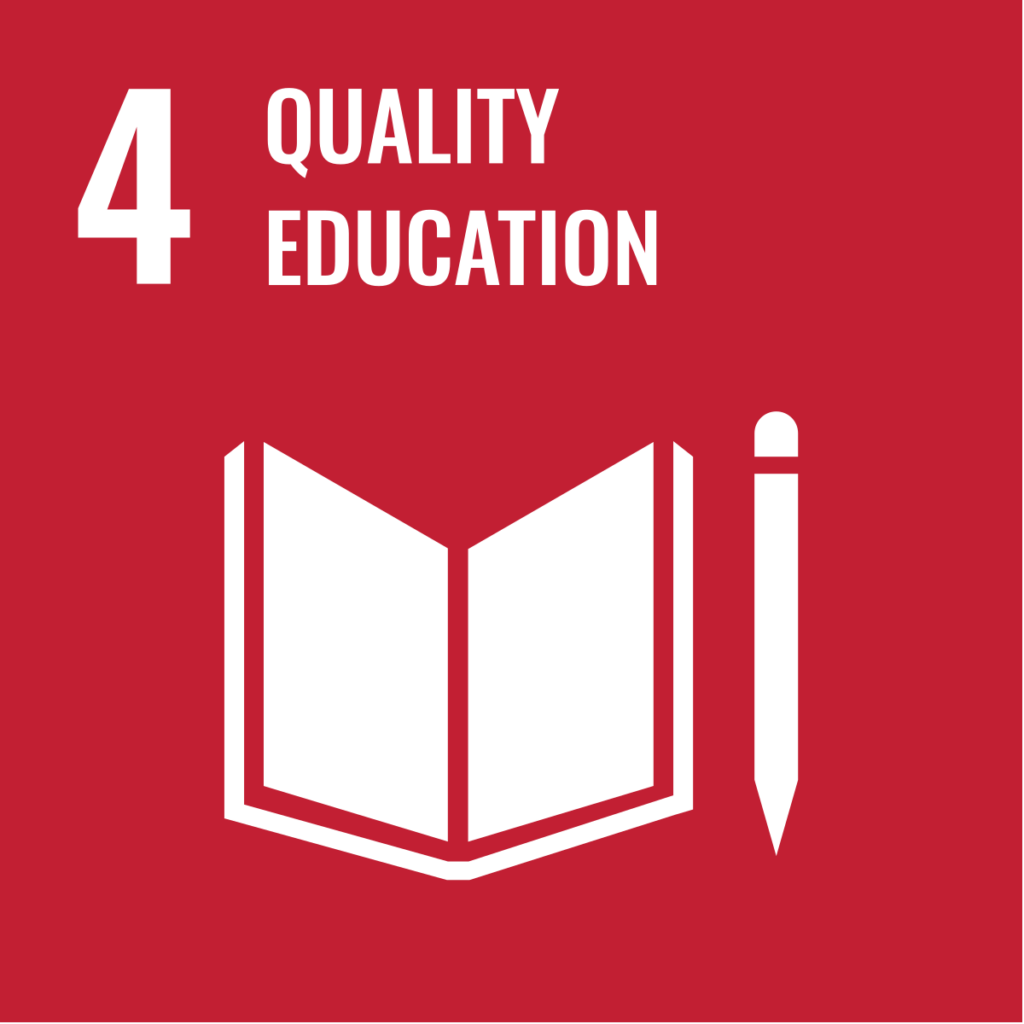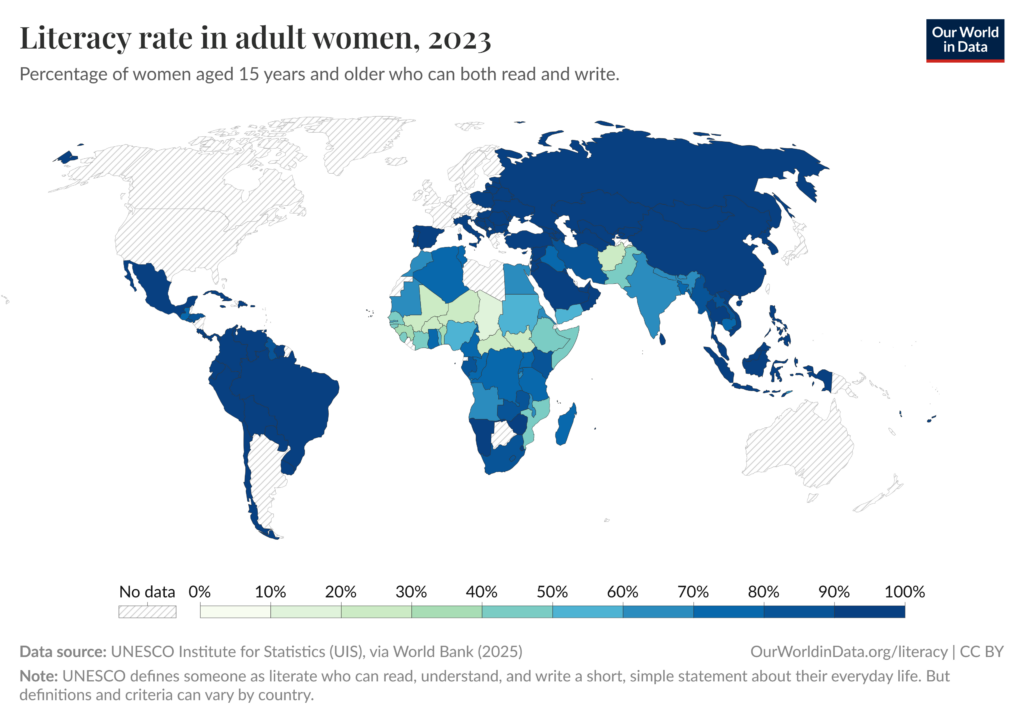Ensure inclusive and equitable quality education and promote lifelong learning opportunities for all
Sustainable Development Goal #4 is Quality Education. As a teacher, this goal has added importance. Not only is this goal closely tied to the Professional Standards for BC teachers, but as a teacher, I genuinely want to help all my students learn and be able to live successful and purposeful lives. As a teacher, what I do can help work towards achieving this goal. Although I won’t have an impact globally, I can work hard to ensure all my students learn how to read and write and I can teach them about the SDGs.

Some of targets for this goal that I can help achieve include:
- 4.4 By 2030, substantially increase the number of youth and adults who have relevant skills, including technical and vocational skills, for employment, decent jobs and entrepreneurship
- I can include skills relevant to employment in my teaching and ensure students are aware of different training opportunities available within our community.
- 4.6 By 2030, ensure that all youth and a substantial proportion of adults, both men and women, achieve literacy and numeracy
- I can do my best to ensure that all students I teach gain basic literacy and numeracy skills at minimum so they can become literate adults in the future.
- 4.7 By 2030, ensure that all learners acquire the knowledge and skills needed to promote sustainable development, including, among others, through education for sustainable development and sustainable lifestyles, human rights, gender equality, promotion of a culture of peace and non-violence, global citizenship and appreciation of cultural diversity and of culture’s contribution to sustainable development
- I can explore these topics with the students I teach to help them develop empathy and respect for others and the environment. There are many ways to include these topics within the curriculum and the core competencies.
- 4.c By 2030, substantially increase the supply of qualified teachers, including through international cooperation for teacher training in developing countries, especially least developed countries and small island developing States
- I just completed the teaching program in April and I’m now a qualified teacher. Although this does not help developing countries that have a desperate need for qualified teachers, the area I live in has been experiencing a shortage of certified teacher over the past few years. There have been many uncertified teachers covering classrooms full time as a result. Becoming a teacher has helped decrease this shortage in my community.
Discussion Post from Module 2: Transforming Our World Through Education
Target 4.6
By 2030, ensure that all youth and a substantial proportion of adults, both men and women, achieve literacy and numeracy
Indicator 4.6.1
Proportion of population in a given age group achieving at least a fixed level of proficiency in functional (a) literacy and (b) numeracy skills, by sex
See it!

This target made me think about the documentary called The Truth About Reading. David Chalk, a Canadian technology entrepreneur, is featured in the documentary because he didn’t learn to read until he was 62. He discusses how awful it was and the suffering he endured as a result of not learning to read in school.

Worldwide, there are many adult men and women that share the same disadvantage.
Feel it!
Based on information on the Statistics Canada website, there’s a large portion of adults in Canada that score low on literacy and numeracy assessments. Globally, there are even more adults that have low literacy and numeracy skills. Although people may find ways to cope, similarly to David Chalk, it still greatly limits a persons ability to communicate and navigate parts of everyday life. If someone can read, they can learn so much about our world but lacking that skill eliminates this access to knowledge. It saddens me that there are so many people who don’t have this ability, but at the same time, I’m hopefully that the positive trend continues and the proportion of adults with strong literacy and numeracy skills continues to increase.
Ask it!
As a teacher, I know I can have a positive influence on this numbers within my community, but how will these numbers change globally? In the countries with so few adults with literacy and numeracy skills, who will teach them? I imagine it being a pebble in the water: if a few people in the very low scoring countries learn these skills, they can spread their knowledge. How can this happen more quickly?
Show it!

I made my symbol a child reading and thinking because reading opens up a world of possibilities for children and adults. Access to knowledge is an invaluable equalizer.
References
Government of Canada. (2024, December 10). Literacy, numeracy and adaptive problem-solving skills of Canadians: Results from the 2022 programme for the International Assessment of Adult Competencies. Statistics Canada. https://www150.statcan.gc.ca/n1/daily-quotidien/241210/dq241210a-eng.htm
Our World in Data. (2023, July 18). Ensure inclusive and quality education for all and promote lifelong learning. https://ourworldindata.org/sdgs/quality-education
United Nations. (n.d.). Goal 4 | Quality Education. United Nations. https://sdgs.un.org/goals/goal4
